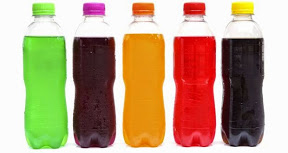
The Indian Government has recently suggested that companies manufacturing aerated drinks should reduce the content of sugar in their products in the wake of issues surrounding the consumption of sugar sweetened beverages linked to various health complications.
There has been several research studies that showed the relation between consumption of carbonated soft drinks and obesity.
Also excessive intake of sugar is linked to impaired brain function, lowered immunity, insulin resistance, poly cystic ovarian syndrome, metabolic syndrome, increaser risk of cancer and coronary heart disease.
Sugar, which is found to be additive in nature, follows the same chemical mechanism as narcotics to attack the brain centre responsible for eating. It's also been found that excessive intake of sugar inhibits the microbial flora in the intestine which may gradually lead to bloating in addition to worsening other stomach complications like flatulence and heartburn. Several pople are unaware of the fact that consumption of sugar in excess may deplete the body’s store of nutrients namely zinc, chromium and B-complex vitamins.
The World Health Organisation (WHO) has lowered the recommended dietary intake of sugar from 10% to less than 5% of the total calorie intake, which accounts for around 5 teaspoons of sugar per day for a 2000 Kcal diet. However, a single can of sugar sweetened beverages like fruit juices, iced teas, aerated drinks, sherbets, sodas and squashes exceeds this limit.
It's been estimated that intake of an extra glass of sugary drinks increases the risk of obesity by 60% with children being more vulnerable to consumption of sweetened beverages.
The effect of liquids (drinks) and solid foods rich in sugar exert different physiological activity on satiety. It may be because of reduced gastric distension that the energy in liquids is not well detected by the brain thereby aiding in intake of more quantity to produce satiation. Also diet sodas are not that good for health as studies have shown that regular intake of these drinks increases the risk of obesity and diabetes.
Follow on Twitter @adlekchills